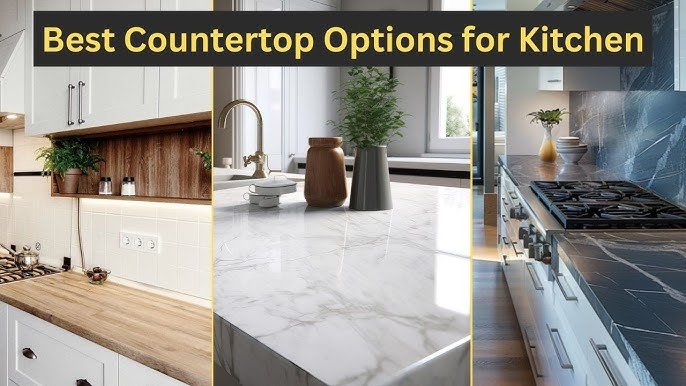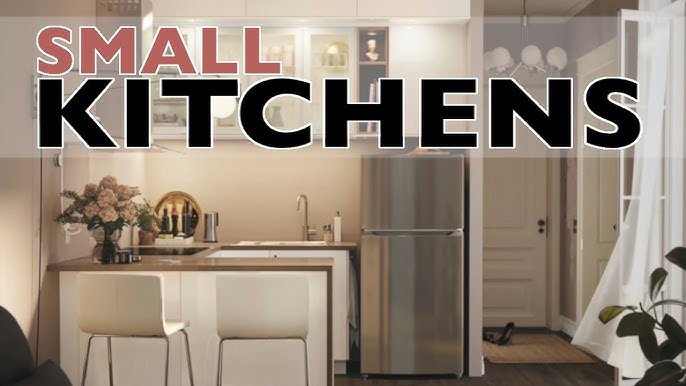Choosing the right kitchen countertops is one of the most important decisions you’ll make when designing or renovating your kitchen. Countertops are not only functional surfaces but also major design elements that can define the style and atmosphere of your space. With so many materials, colors, and finishes available, making the right choice can be overwhelming. Here’s a comprehensive guide to help you find the perfect countertops for your kitchen.
Consider Your Lifestyle
Your daily kitchen activities will play a big role in determining the best countertop material for you. If you cook frequently and need a durable surface that can withstand heat, spills, and scratches, look for something robust like granite or quartz. For those who use their kitchen more for entertaining or as a social space, aesthetic appeal may be more important than heavy-duty durability.
Popular Countertop Materials
Each countertop material has its pros and cons. Here’s an overview of some of the most popular options:
- Granite: A timeless favorite, granite is known for its natural beauty and durability. It’s heat-resistant and scratch-resistant but requires sealing to prevent staining.
- Quartz: Engineered quartz is non-porous, making it resistant to stains and bacteria. It’s available in a wide range of colors and patterns and doesn’t require sealing.
- Marble: Marble offers a luxurious look with unique veining. However, it’s softer and more prone to scratching and staining compared to granite or quartz.
- Butcher Block: For a warm, natural feel, butcher block countertops are an excellent choice. They require regular maintenance to prevent water damage but are great for chopping and food prep.
- Laminate: A budget-friendly option, laminate comes in a variety of designs and mimics the look of more expensive materials. While less durable, it’s easy to maintain.
- Concrete: Modern and customizable, concrete countertops can be molded into various shapes and finished in numerous colors. However, they require sealing and may develop hairline cracks over time.
- Stainless Steel: Ideal for industrial or modern kitchens, stainless steel is durable, heat-resistant, and easy to clean. It can, however, show scratches and fingerprints.
Match Your Design Aesthetic
Your countertops should complement your kitchen’s overall design style.
- For a classic or traditional kitchen, opt for natural stones like granite or marble.
- A modern kitchen pairs well with sleek quartz or concrete countertops.
- If you’re going for a rustic or farmhouse style, butcher block or soapstone can add warmth and charm.
- A minimalist look works well with monochromatic quartz or stainless steel for a clean and simple vibe.
Factor in Maintenance
Different materials require different levels of upkeep. If you prefer low-maintenance countertops, opt for quartz or laminate, which are easy to clean and don’t require regular sealing. Natural stones like granite and marble are stunning but need periodic sealing to maintain their appearance and prevent stains.
For materials like butcher block, frequent oiling is necessary to keep the surface protected from moisture and bacteria. Consider how much time and effort you’re willing to invest in maintaining your countertops before making a decision.
Set a Budget
Your budget will largely influence your choice of countertop material. Laminate and tile are affordable options for those on a tighter budget. If you’re willing to invest more, quartz and granite offer excellent durability and aesthetic appeal. Marble and custom concrete are on the higher end of the price spectrum, but their unique beauty and style can be worth the cost.
Don’t forget to include the cost of installation in your budget, as materials like granite and quartz often require professional installation, adding to the overall expense.
Think About Functionality
Your countertop choice should also suit your kitchen’s functionality. If you need a heat-resistant surface for placing hot pots and pans, granite or stainless steel is a great option. For food prep, butcher block or quartz with a smooth, non-porous surface is ideal.
If you have children, consider a durable and stain-resistant material that can handle spills and scratches, such as quartz or laminate.
Explore Color and Finish Options
The color and finish of your countertops can dramatically impact the look of your kitchen. Light-colored countertops can make a small kitchen feel more open and airy, while darker tones add drama and contrast to larger spaces.
Matte finishes create a soft, understated look, while polished finishes enhance the shine and bring out the richness of the material. Test samples in your kitchen space to see how the material interacts with your lighting and other design elements.
Eco-Friendly Choices
For environmentally conscious homeowners, there are sustainable countertop options to consider. Recycled glass countertops, reclaimed wood, or bamboo are great eco-friendly alternatives that don’t compromise on style or functionality.
Ask for Samples and Test Durability
Before committing to a material, ask for samples and test them in your kitchen. Place the samples under your lighting to see how they look at different times of the day. You can also perform simple durability tests, such as scratching or spilling liquids, to evaluate how the material handles wear and tear.
Work with a Professional
If you’re still unsure, consult with a professional designer or contractor. They can guide you through the selection process and recommend materials that align with your budget, style, and functional needs.
Conclusion
Choosing the perfect kitchen countertops involves balancing aesthetics, functionality, budget, and maintenance. By carefully considering your lifestyle and the unique qualities of each material, you can find countertops that not only enhance your kitchen’s beauty but also stand the test of time.


